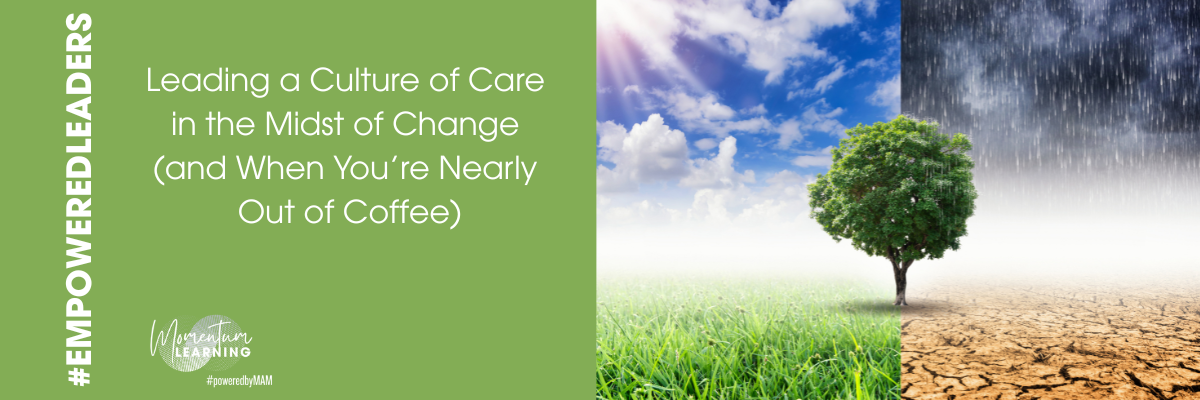Leading a Culture of Care in the Midst of Change (and When You’re Nearly Out of Coffee)
Let’s be real — some days feel like you’re spinning 12 plates, managing the caffeine supply, and holding space for everyone else. The pace is unrelenting. The pressure is real. And more and more, I’m hearing the same quiet truth: people are tired.
So you do what you’ve always done. You step in.
You remember the birthdays, notice when someone’s off, check in after a tough meeting, send the thoughtful text. You carry care — because people matter. Because connection matters.
But what happens when it starts to feel one-sided?
When you’re holding all the care… and it’s not being returned?
That’s real. And it’s quietly exhausting.
Care can’t be sustained if it only flows one way. Culture can’t be held together by just one or two kind-hearted humans doing the heavy emotional lifting. A strong culture is co-created. And when the load consistently falls on a few, it doesn’t empower — it erodes.
And here's the thing — your brain’s working hard in the background just to keep you functioning. As Psychology Today explains, our brains treat every change — even the small ones — as a potential threat. It's a built-in survival response. So when you layer emotional labour on top of ongoing change and uncertainty, your brain moves into protection mode. That means less capacity for creativity, care, and connection — and more fatigue, frustration, and fog (Stulberg, 2024).
No wonder so many are quietly cracking.
In Aotearoa, research shows that around 11% of people in caring or leadership roles meet the threshold for burnout (Carey & Naquin, 2024). And it’s not just workload — it’s the emotional load. The constant attunement to others. The quiet hope that someone will check in on you, too.
And as Dr. Michelle McQuaid gently reminds us:
“You can’t create a well workplace if your well-being is always at the bottom of your to-do list.”
So here’s your quiet reminder — maybe the one you didn’t know you needed:
You matter too.
Your energy. Your mauri. Your boundaries.
And sometimes, the most courageous thing you can do isn’t doing more — it’s gently inviting others to step in:
“I’ve been wondering how we each support the emotional load in this space — what have you noticed?”
“What might it look like if care was something we all contributed to, in ways that worked for us?”
And sometimes, it’s about stepping back just enough to make room.
Room for reciprocity.
Room for shared rhythm.
Room for others to carry care too — not as a burden, but as a shared value.
Because culture doesn’t shift through over-functioning. It grows through kōrero, invitation, and collective ownership — especially when things are hard.
Re-grounding Prompt:
Where might you be overextending — and what gentle pause, boundary, or ask could help restore balance this week?
With care,
Mary‑Anne

